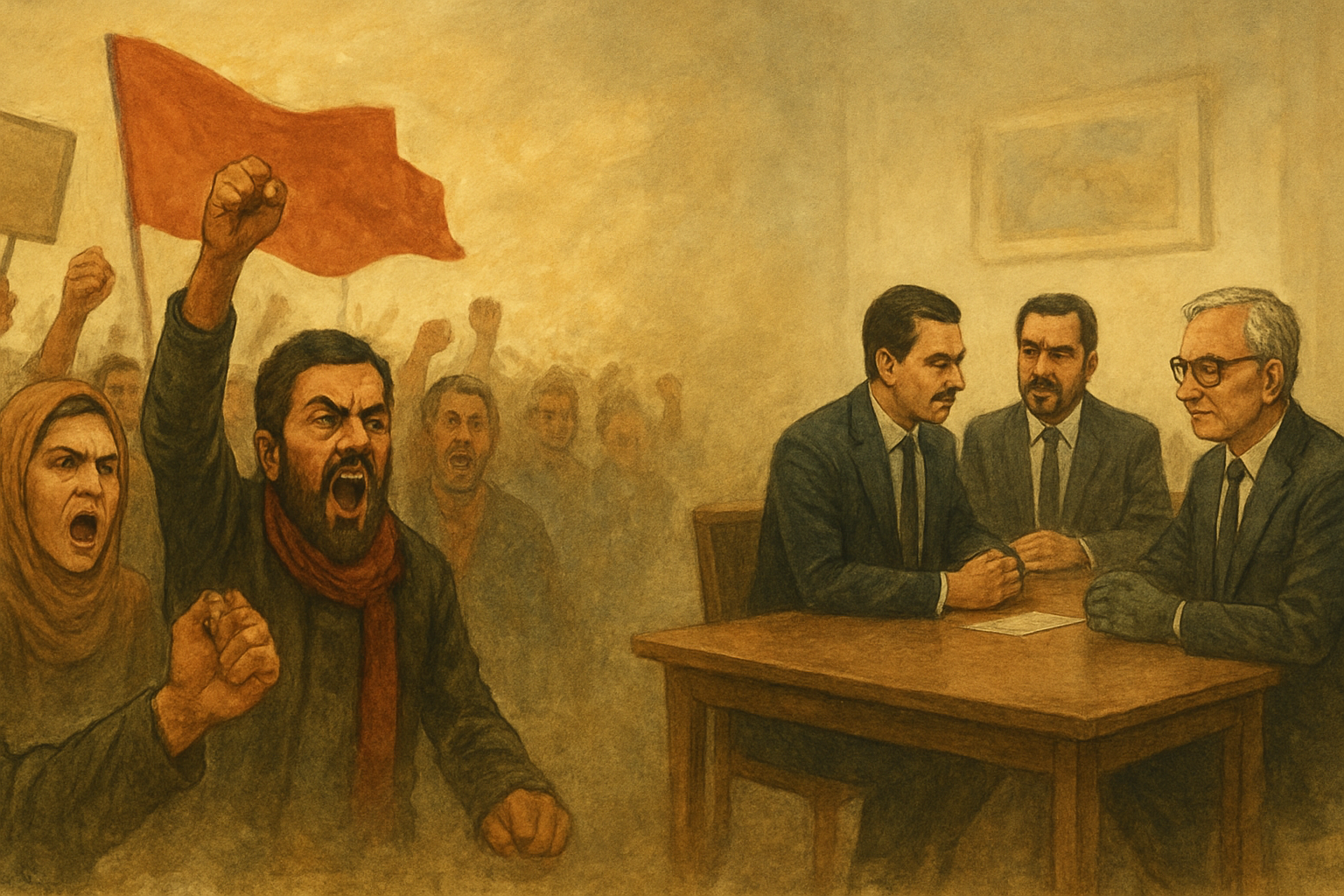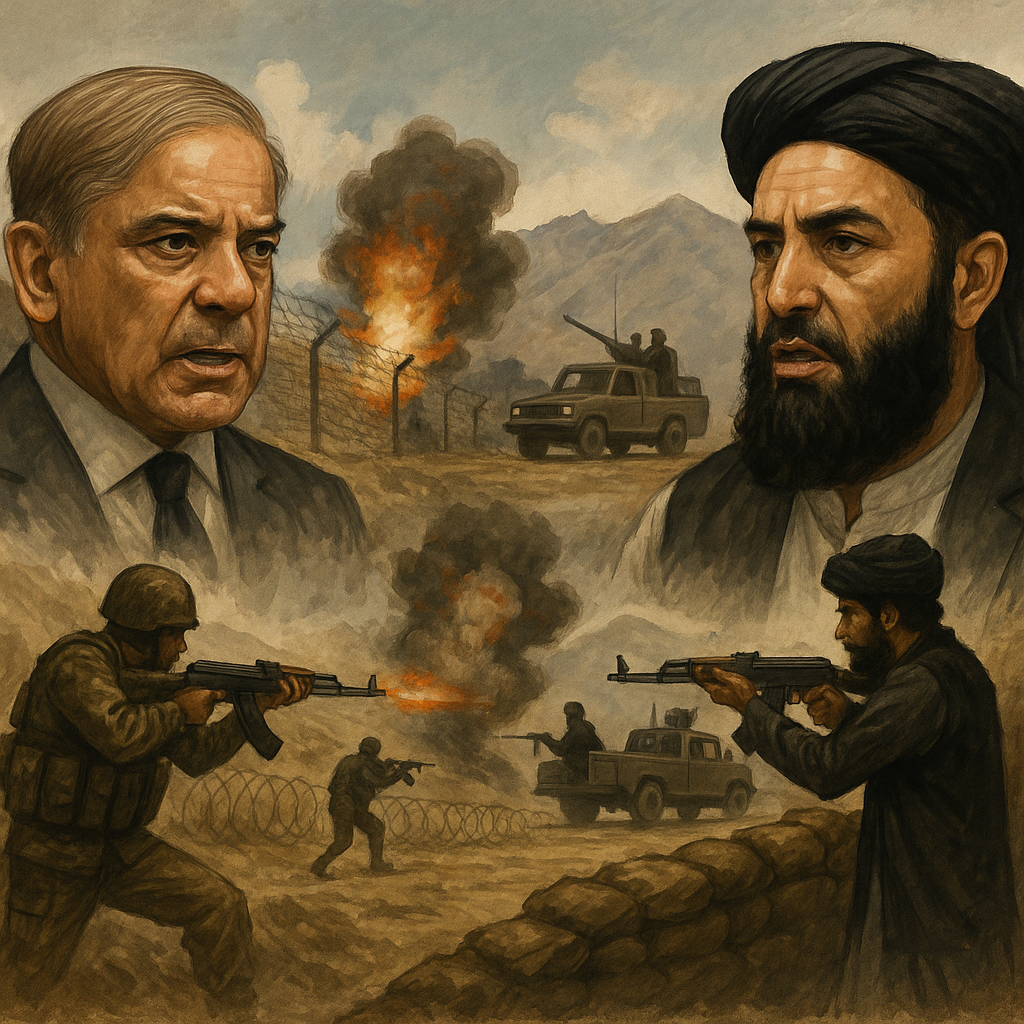Azhar Rasheed
1. Executive Summary
In Pakistani mainstream media hardly any mention is made of the recently issued “Charter of Demand” by the Joint Public Action Committee of Azad Jammu & Kashmir (AJK) marks a critical juncture in the region’s political consciousness. Rather than a mere protest manifesto, the Charter represents a systemic call for governance reform, financial autonomy, and constitutional restructuring within the framework of Pakistan’s federation. Its tone is reformist, not separatist — yet its implications for Pakistan’s federal and strategic architecture are profound.
2. Historical Context
Since 1947, AJK’s governance has oscillated between symbolic autonomy and federal administrative dependence. The 1974 Interim Constitution offered limited self-rule but failed to grant true fiscal or political agency.
Today’s Charter reflects accumulated public frustration with decades of structural exclusion, corruption, and lack of transparency — yet it channels this discontent into policy-oriented demands rather than populist slogans. The relationship between the protests and the Charter of Demands in Azad Jammu & Kashmir (AJK) is clear: the protests came first, and the charter resulted from them. The charter was not a cause but rather an outcome—a document that evolved to formally articulate the grievances that initially drove people to protest.The timeline below summarizes how the movement and its charter of demands have developed.
Time Key Event Development of Demands
Early 2023 Protests begin over electricity bills and flour shortages. Grievances are not yet consolidated into a formal charter.
Sep 2023 The Jammu & Kashmir Joint Awami Action Committee (JAAC) is formed. A 10-point charter is presented, focusing on electricity costs, wheat flour subsidies, and elite privileges.
May 2024 Mass protests and a long march force government concessions. Demands expand to 16 points, adding healthcare, education, and infrastructure.
By 2025 Protests resume as the government fails to fully address the demands. The charter formalizes into a 38-point document, adding political issues like abolishing reserved assembly seats.
The government’s response has included a complete communications blackout, cutting off mobile telecommunications and internet access in the region since September 28 . Authorities have also warned local media against covering the demonstrations .
Officials state this was necessary to restore order and curb the spread of “fake news” and “propaganda” . However, this blackout has fueled frustration, with protesters accusing the government of silencing them and preventing coverage of their grievances and the state’s use of force . Organizations like Amnesty International have warned that the blackout causes panic and fuels misinformation .
3. Key Demands of the Charter
The JAAC’s Charter of Demands is a document born from protest. It has systematically evolved, transforming from a list of immediate economic relief measures into a comprehensive call for governance reform and financial autonomy within AJK.
The Charter outlines a three-tier reform agenda:
- Administrative Reforms:
- Establishment of an Independent Election Commission and Public Accountability Bureau
- Judicial reforms ensuring independence from political interference
- Economic Self-Reliance:
- Control of AJK’s hydroelectric, water, and mineral resources
- Equitable fiscal distribution between Islamabad and Muzaffarabad
- Guaranteed 5 KVA electricity subsidy and youth employment initiatives
- Transparency and Rights:
- Public disclosure of all state contracts and federal agreements
- Access to information for citizens under Right to Know provisions
- Expansion of education and healthcare opportunities for youth
4. International and Legal Parallels
From an international law perspective, the Charter aligns broadly with the UN Charter and the Universal Declaration of Human Rights (UDHR), particularly regarding:
- Article 21 (Right to self-governance)
- Article 10 (Right to fair trial)
- Article 19 (Right to information)
Under Pakistan’s Article 257, the State of Jammu & Kashmir is constitutionally entitled to choose its system of governance in accordance with its people’s will.
This creates a potential legal space for AJK to negotiate a revised federal relationship, provided reforms remain within Pakistan’s constitutional framework.
5. Strategic Implications
The Charter has dual strategic significance:
- Domestically: It signals growing political maturity in AJK — a demand for functional autonomy rather than symbolic status.
- Externally: It demonstrates to international observers that the Kashmiri discourse is moving toward governance-based legitimacy rather than confrontation.
If addressed constructively, it can strengthen Pakistan’s moral and diplomatic position on the Kashmir issue by showing democratic inclusivity and responsive governance.
6. Policy Recommendations
To convert the Charter into a sustainable framework, the following steps are advised:
- Joint Constitutional Dialogue Forum (JCDF): A trilateral body including AJK representatives, federal law experts, and civil society.
- Fiscal Transparency Framework (FTF):Introduce a transparent formula for resource-sharing (hydropower, taxation, royalties).
- Governance Reform Roadmap 2025: A five-year institutional reform strategy addressing judiciary, police, and bureaucracy.
- Strategic Communication Initiative: Present the Charter internationally as a model of internal democratic reform rather than political dissent.
7. Conclusion
The AJK protests are a powerful reminder that civic rights movements cannot be ignored. A resolution hinges on transparent dialogue and a genuine commitment to addressing long-standing grievances .The Charter of Demand is a landmark in AJK’s political evolution — a manifesto of governance, not secession.
If absorbed into Pakistan’s constitutional mainstream through dialogue, it can emerge as a federal reform model for other administrative territories as well. However, neglect or suppression of its core principles could turn this constructive moment into a renewed crisis of legitimacy.
Azhar Rasheed Khan (PSP) is a senior policy analyst specializing in governance reform and strategic communication.He writes on political evolution, security governance, and federalism in South Asia.


